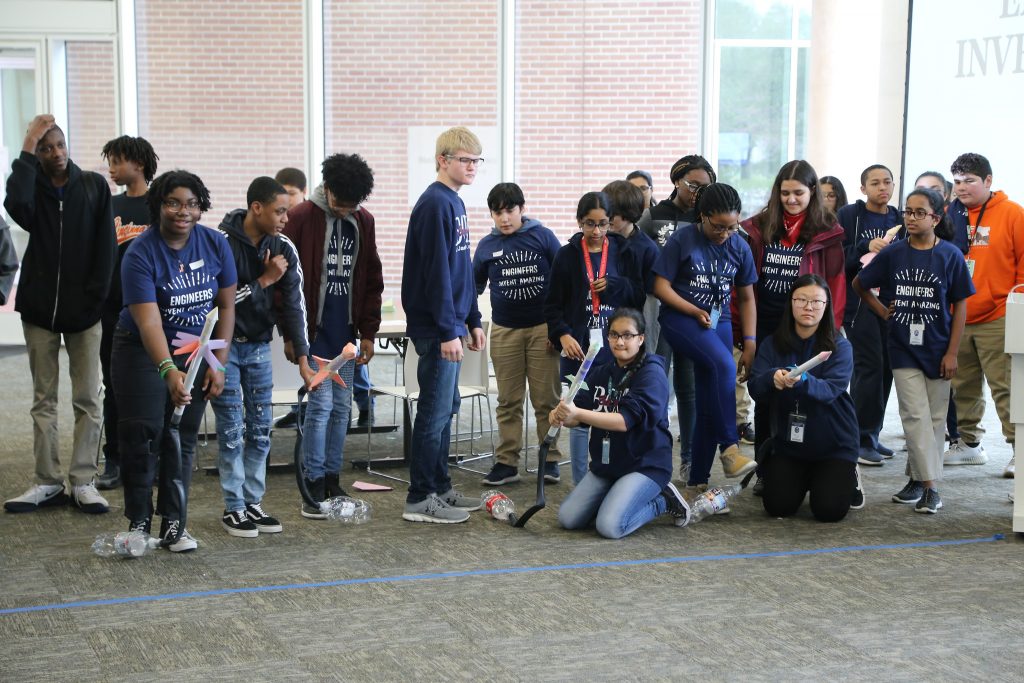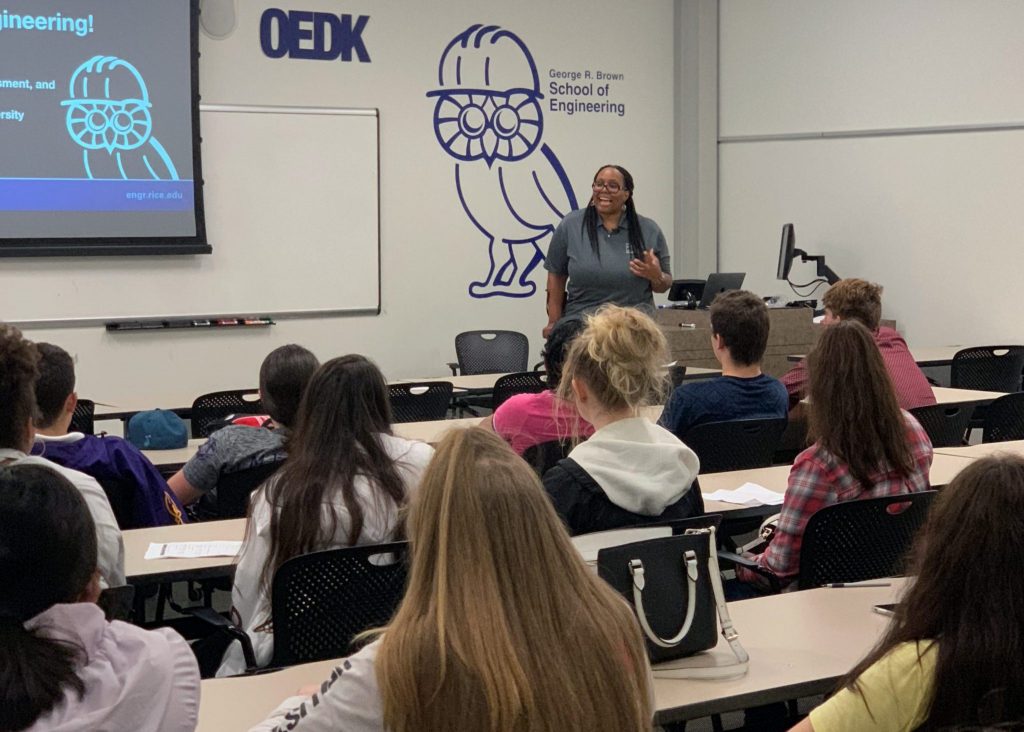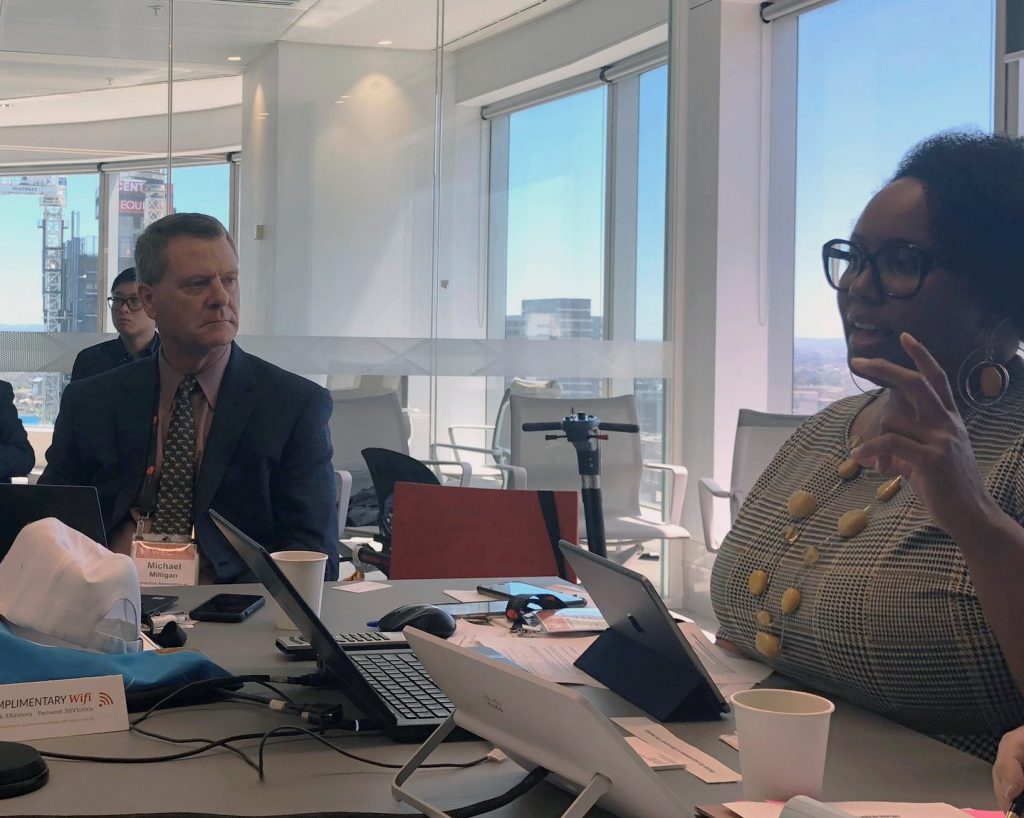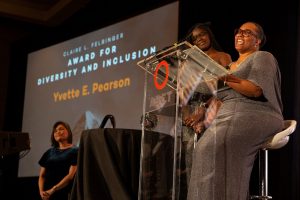Earlier this month we celebrated Engineers Week, an annual event founded in 1951 by the National Society of Professional Engineers (NSPE) — one of ABET’s member societies. NSPE’s purpose in organizing EWeek is to “ensure a diverse and well-educated future engineering workforce by increasing understanding of, and interest in, engineering and technology careers.” Engineers and other STEM professionals play a critical role in designing solutions to make the world a better place — one that is safer, more efficient and more sustainable — but in order to develop solutions that benefit the lives of people around the world, our global workforce must be comprised of people from diverse backgrounds, perspectives and personal experiences. Promoting and enabling a vibrant and diverse STEM enterprise has never been more vital to the global system of innovation, economic prosperity and quality of life.

EWeek falls in the middle of Black History Month, which provides a unique opportunity to recognize and honor the important contributions by African American visionaries to engineering and society as a whole. The contributions made by African Americans and other historically marginalized communities to the STEM field have been invaluable; however, persistent inequalities still exist, which underscore the significance of diversity, equity and inclusion efforts. Today there is growing attention and awareness by a number of STEM organizations to directly incorporate diversity, equity and inclusion principles into their respective policies and initiatives. For example, ABET Program Evaluator and recipient of the 2019 Claire L. Felbinger Award for Diversity and Inclusion Award Yvette E. Pearson, Ph.D., P.E., F.ASCE, worked with her colleagues to add a new canon focused on diversity, equity and inclusion to the American Society of Civil Engineers (ASCE) Code of Ethics. Serving as a co-author, she took leadership in developing Principle C of Canon 8, which requires civil engineers to consider the diversity of the community they are serving, and endeavor to include diverse perspectives in the planning and performance of their work.
Pearson’s efforts are a remarkable example of the significant impact an individual can make. Her personal and professional commitments to advancing diversity and inclusion in engineering education and practice extend beyond the typically addressed dimensions of diversity in the profession; she also focuses on often-ignored dimensions such as visible and invisible disabilities, socioeconomic status and age.

Nearly every EWeek throughout her professional career, Pearson has worked with colleagues to organize outreach activities for middle school students. Pearson’s efforts are specifically targeted at schools with large populations of students from low-income backgrounds which, unfortunately, often coincide with schools with large underrepresented minority populations as well.
The latest Science & Engineering Indicators report by the National Science Board shows that performance disparities in math and science achievements between students with differences in race or ethnicity and family income level start as early as elementary school. In middle and high school, schools with high black and Latino enrollment consistently have less access to STEM classes such as calculus, chemistry and physics. Experiences like those Pearson organizes for EWeek are crucial to students from schools such as these, as they may not gain any hands-on exposure to engineering’s real-world challenges otherwise. Building a diverse technical workforce begins with a diverse pipeline of students and encouraging participation is the first step in the process.
Pearson’s efforts have impacted countless people, many of whom she’ll never know. Her legacy will extend far beyond engineering education towards transforming the way we practice engineering, potentially helping countless communities worldwide experience a safer, better quality of life.
Last November, Pearson and I both attended and spoke at the World Engineers Convention, hosted by Engineers Australia and the World Federation of Engineering Organizations (WFEO) in Melbourne, Australia. The theme of the event was “Engineering a Sustainable World: The Next 100 Years.” There, WFEO announced the founding of World Engineering Day for Sustainable Development, which will be held on March 4 each year.

World Engineering Day celebrates engineers and engineering and the crucial role they play in achieving the United Nations Sustainable Development Goals. Meeting the world’s current and future challenges requires a highly skilled, diverse and globally competent technical workforce. In order to design solutions that serve the needs of all populations, we must be culturally sensitive and inclusive to the populations we serve. As Pearson often points out, “We cannot effectively solve problems for a heterogeneous society with homogeneous teams of engineers.” We need people with different skills, backgrounds and perspectives to optimally devise solutions for society’s most pressing challenges.

At ABET, we believe that understanding, embracing and prioritizing diversity and inclusion in higher education is critical to competitiveness, innovation, and our global pursuit to sustainability. To recognize the efforts of educational institutions, individuals, associations and firms for success in achieving diversity in the technological segments of our society, we established the Claire L. Felbinger Award for Diversity and Inclusion in 2005. This award allows us to recognize the amazing achievements of individuals like Pearson, who are paving the way for generations of engineers to come.
Nominations are open for the 2020 ABET Awards until April 20. Do you know an individual who is helping advance diversity or challenging the status-quo in technical education? Consider nominating them for an ABET award.